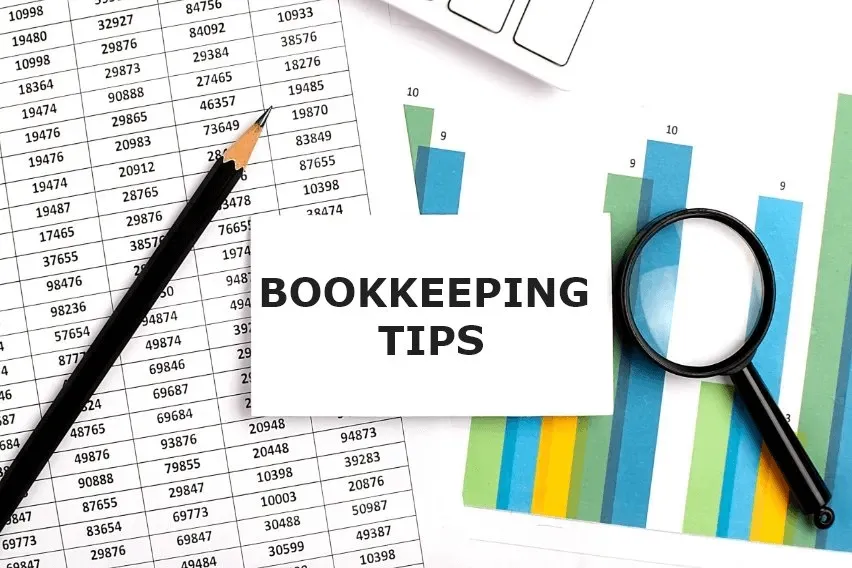Ecommerce Bookkeeping: The Small Business Guide

Ecommerce is a fast-paced business. If you have a great product to sell, ecommerce platforms like Shopify, Wix, or WooCommerce make selling easy. But merely having an ecommerce business is not enough for success.
The fierce competition means business owners must take special note of their bookkeeping system, especially around tax season. That’s why developing the best bookkeeping practices can make all the difference.
An accounting program can track how many units were sold or if you’ve turned a profit. Of course, the bookkeeping process for ecommerce includes many factors and variables. But this small business guide will help you get started.
Table of Contents
- Importance of Ecommerce Bookkeeping
- Basics of Ecommerce Bookkeeping
- Issues Business Owners Face in Ecommerce Bookkeeping
- How FreshBooks Can Help
- 6 Ecommerce Bookkeeping Best Practices
- Conclusion
- Frequently Asked Questions
Importance of Ecommerce Bookkeeping
Bookkeeping is a vital component of any business, but especially for ecommerce. Your company will suffer if you don’t know what’s going on with your business bank account. Ecommerce businesses have to pay bills like any other business. They need to calculate shipping fees and unearned revenue and maintain the general ledger.
The importance of bookkeeping for ecommerce isn’t only apparent when it’s tax time but year-round. Here are the most important reasons why bookkeeping is essential for ecommerce entrepreneurs.
Better Understanding of Your Finances
Some might find that glancing at financial statements from time to time is enough of an accounting effort. But a company’s financial health depends on having the most accurate financial data. A reliable bookkeeping system allows you to handle the business’ growth better.
For instance, cash flow allows you to understand the amount of your liquidity. With efficient bookkeeping, small business owners can identify tax deductions or apply for a business loan. Furthermore, you can detect banking errors and even fraud by understanding financial reports.
Improved Decision-Making
There’s a lot of talk about how it’s essential to follow your gut in business. It may be true to an extent. However, having access to reliable financial data is often more critical. Accurate inventory tracking and other aspects of bookkeeping lead to better decisions.
Let’s imagine that you need more space for your business. These are not business decisions one makes on a whim. Instead, you’ll look at the overall business’s financial health and financial reports. Proper ecommerce accounting tells you whether you can afford these types of choices.
Efficient Inventory Tracking
Inventory count and management are the lifeblood of all ecommerce companies. Without products, there’s no revenue. Accurate inventory tracking lets you know when to reorder products. An ecommerce business should track the goods sold year-round.
However, e-commerce businesses should also stay abreast of industry trends. For instance, if the popularity of a specific item spikes, it will directly impact cash flow. Business owners must diligently track their inventory, as accurate management can significantly reduce inventory loss. To efficiently manage your inventory, we’ve compiled a list of top inventory management software for small businesses. These platforms allow you to minimize inventory loss and handle multiple warehouses, e-commerce operations, and purchase orders seamlessly from a single management system.
Learning About Profitability
Ecommerce store owners should know the cost of a particular stock keeping unit (SKU.) Furthermore, knowing the average ad costs for an SKU is also vital.
However, ecommerce businesses should also consider conversion rate and staffing costs. With these and several other factors, you can estimate the profitability of an SKU.

Basics of Ecommerce Bookkeeping
Keeping track of ecommerce books has several important elements. An ecommerce business owner has to consider how to track their financial transactions, merchant fees, and more. They will need templates, invoices, and receipts for multiple sales channels. The following financial statements are vital for a business’s finances.
Balance Sheet
A balance sheet contains 2 columns. One column contains the company’s assets and the other, liabilities. Balance sheets are an essential tool for financial reporting.
They show the total profit and loss for the time when the sheet was made. An ecommerce business asset may include inventory, cash funds, and equipment. On the other hand, liabilities are usually outstanding business loans or mortgage payments.
Income Statement
Ecommerce accounting also includes producing an income statement. This document contains all the money coming into the company over a specific period.
That period can be a year, a quarter, or even a month. It also contains operating income and non-operating income. For example, operating income comes from inventory sales if your business is retail. On the other hand, non-operating income comes from property sales or investment returns.
Cash Flow Statement
The cash flow statement is probably the most important document for any type of bookkeeping. The same applies to ecommerce businesses. It contains every dime your business spends. Rent, inventory, maintenance, income stream, and taxes are all in this statement.
But more importantly, cash flow shows your gross revenue and net profit. Cash flow is vital for retailers. If you know exactly how much money goes through the business, you can keep a positive profit margin.
Issues Business Owners Face in Ecommerce Bookkeeping
The number of ecommerce companies is on the rise. That’s unsurprising, given that you don’t need much to start. However, without a robust bookkeeping solution, ecommerce companies often fail. Some companies find an in-house bookkeeping solution. Others turn to third-party tools and outsourcing. But what are the most common issues ecommerce companies have?
These are the most common problems.
- Sales tax and legal issues – Sales tax is a headache for many ecommerce company owners. It’s the amount added to the total price of a product or service. Online merchants must collect and manage the tax properly during tax time. This type of tax depends on location and other factors. For online merchants, this is often difficult to handle. Therefore, an accountant or bookkeeping service helps.
- High-volume transactions – If your ecommerce company is successful, your bookkeeping needs will increase. Interpreting financial information takes time and knowledge. Many transactions translate to plenty of data. So, companies may need to rely on a bookkeeping service.
- Limited access to analytics – Tracking the overall performance of any company is virtually impossible without the right accounting app. Modern online entrepreneurs demand services that provide them with transparent access to analytics.
- Manual data entry – Smaller ecommerce companies may not have an issue with manual data entry. But as the company grows, their needs evolve. With manual data entry, human errors are inevitable. That’s why it’s essential to invest in a comprehensive bookkeeping service over time.
How FreshBooks Can Help
These days, it’s not hard to find decent bookkeeping software. But for ecommerce, company owners need a comprehensive tool. FreshBooks is the perfect example of trustworthy and robust accounting software.
It’s not just for ecommerce either. Freelancers, contractors, self-employed professionals, and even accountants can use it. You can use FreshBooks for more than just accounting or handling tax returns. Third-party providers like FreshBooks offer invoicing, estimates, payroll services, and more.
6 Ecommerce Bookkeeping Best Practices
There are a few essential practices to consider when discussing ecommerce business and accounting. The following principles apply whether you have an in-house accountant or dedicated software.
Inventory Management
We touched on the importance of inventory management earlier. But it’s important to reiterate how essential it is for an ecommerce business. Some platforms offering ecommerce services have built-in inventory management tools. However, if you’re selling from multiple places, tracking changes to the inventory becomes difficult. That’s why having one inventory tracking software is the solution.
Sales Tax
We’ve discussed sales tax as an issue for many ecommerce businesses. It’s impossible to overstate how crucial it is to collect and pay this tax for ecommerce companies. This money is not revenue but a sum a company owes to the government. Once you collect it, make sure to deposit it correctly.
Break Even Point
The break even point, or BEP, is when the company’s revenues and expenses are equal during a particular accounting period. Ecommerce businesses should calculate the BEP to know the minimum for the production expenses. Factors that impact BEP include an increase in customer sales or production cost. But events like unexpected equipment repair also lead to higher operational costs.
Other Costs and Expenses
Like any business, managing an ecommerce company comes with considerable expenses. You can plan and collect some of them, like shipping costs or cybersecurity protection. But you may also need to deal with refunds, delays, inflation, and much more.
Payment Processors
Third-party payment platforms like PayPal can complicate record-keeping. You may sell a product via Shopify, but the payment goes through Stripe. That means you need to pay merchant fees. But also, if a buyer returns the product, how do you track it? This is an important factor to keep in mind when choosing a bookkeeping app.
Loan Details
A loan is often necessary if you want to grow your ecommerce company. However, failing to keep detailed records of loan payments and interests can backfire. Sometimes entrepreneurs can feel overwhelmed and avoid tracking details about their loans. That’s not good practice. Instead, rely on a trustworthy accounting service.
Conclusion
Comprehensive bookkeeping is absolutely essential if you’re running an ecommerce business. You’ll need to deal with issues like tracking inventory, sales tax, financial reports, and merchant fees. Without an accountant or a dedicated bookkeeping program, managing records is a challenging task. Fortunately, platforms like FreshBooks offer impressive bookkeeping services. FreshBooks will help you start and run your ecommerce business. You can keep your cash flow statements and balance sheets all in one place.

Frequently Asked Questions
What is ecommerce bookkeeping?
This type of bookkeeping mostly focuses on inventory and cash flow. It’s not that much different from standard retail shop bookkeeping. However, some differences do exist.
Which accounting software is best for ecommerce?
There are many excellent solutions on the market. However, FreshBooks is one of the best available options. You can use FreshBooks for ecommerce but also many other purposes.
How do you record ecommerce sales?
You can record ecommerce sales through the ecommerce platform. You’ll need to update the general ledger regularly. But you can also track sales using a reliable accounting tool.
RELATED ARTICLES

 Shopify Bookkeeping: The Complete Guide for 2025
Shopify Bookkeeping: The Complete Guide for 2025 Bookkeeping for Property Management: 8 Best Practices
Bookkeeping for Property Management: 8 Best Practices 15 Bookkeeping Tips: Every Small Business Needs to Know
15 Bookkeeping Tips: Every Small Business Needs to Know Automated Bookkeeping: Benefits, Drawbacks and Prices
Automated Bookkeeping: Benefits, Drawbacks and Prices Outsource Bookkeeping: 6 Benefits, Types & Process
Outsource Bookkeeping: 6 Benefits, Types & Process Bookkeeping with Excel: 6 Steps, Pros, Cons & Example
Bookkeeping with Excel: 6 Steps, Pros, Cons & Example